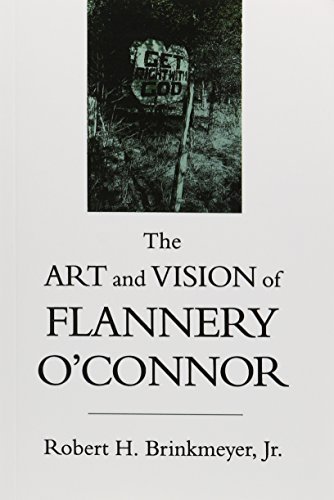
“O’Connor’s anti-intellectual bias is well known. As we have seen in several of her works, intellectuals come under fierce scrutiny and attack in her fiction. This stems in large part from her fundamentalist sympathies, which are embodied most strikingly in her narrators. Apparently O’Connor never tired of downplaying her own intellectual talents and capabilities, and she frequently donned in her letters the mask of a backwoods rube to express both her scorn for modern intellectuals and her insecurity before them. (Particularly in her use of a backwoods mask, O’Connor aligned herself in the tradition of Middle Georgia humor.) Not long before she left for a television interview in New York, she wrote (May 18, 1955) to Robie McCauley: ‘Everybody who has read Wise Blood thinks I’m a hillbilly nihilist, whereas I would like to create the impression over the television that I’m a hillbilly Thomist, but I will probably not be able to think of anything to say to Mr. Harvey Breit [the interviewer] but ‘Huh’ and ‘Ah dunno.’ When I come back I’ll probably have to spend three months day and night in the chicken pen to counteract these evil influences.” Although her words here are written partly in jest, there is a good deal of serious concern behind them, and they underscore her disquiet with intellectuals and her fear of their influence upon her. Frequently she was more straightforward in her comments, as she was to Granville Hicks, who had written asking her to submit an essay for the symposium he was then editing, The Living Novel. She sent him a copy of one of the talks she had given but said that she was sure he would see right off it was not the type of essay he wanted. ‘If the talk had been for a serious audience,’ she wrote (February 21, 1957), downplaying her paper, ‘I would not have been making it.’ To drive her point home, she added, ‘I’m not an intellectual and have a horror of making an idiot of myself with abstract statements and theories’ (HB, 81, 202).
“But of course O’Connor was an intellectual. As the scope and size of her personal library, together with her many references to her readings in her letters, attest, she was extremely well read, particularly (and not surprisingly) in literature and theology. In her numerous book reviews she discusses difficult theological and philosophical issues with ease and grace; it is clear that she is in her element and that she has a thorough grounding in both fields. Given all this, it might seem that O’Connor’s expressed anti-intellectualism should be largely discounted and interpreted as another instance of her comic imagination (playing off the learned against the vernacular) and/or as a manifestation of her insecurity and shyness as a southern Catholic woman facing the northern intelligentsia. Although there is a good deal of truth in both of these interpretations, O’Connor’s attacks on intellectuals and intellectual endeavor go much deeper and are more central to her imaginative life.
“What O’Connor feared and lashed out at was not intellectual activity itself — she was herself, as I have said, a thoroughgoing intellectual — but the dangers that a life of the mind was given to, particularly the temptation to locate all power and authority within the individual consciousness. To center the value and meaning of all creation, including the divine, in the mind was for O’Connor a devastating manifestation of intellectual pride, and one that had to be fiercely resisted. In a letter (January 30, 1956) to A., O’Connor wrote of the tyranny of the intellect, a tyranny that occurred when the mind had no authority other than itself, and she suggested that locating one’s intellectual endeavors within a larger Christian framework controlled the mind’s dangerous play for power. She wrote that as a person becomes deeply involved in the life of the Church, his or her ‘intellect will take its place in a larger context and will cease to be tyrannical, if it has been—and when there is nothing over the intellect it is usually tyrannical. Anyway, the mind serves best when it’s anchored in the word of God. There is no danger then of becoming an intellectual without integrity.’ . . . O’Connor embraced what she called a Christian skepticism, an attitude that encouraged people to learn all that they could but at the same time to keep it all in perspective — a Christian perspective. When she wrote (May 30, 1962) to Alfred Corn, a college student whose faith was wavering, she advised him to cultivate such a skepticism, telling him that ‘it will keep you free — not free to do anything you please, but free to be formed by something larger than your own intellect or the intellects of those around you’ (HB, 134, 478).”
— from Robert H. Brinkmeyer, The Art and Vision of Flannery O’Connor (Louisiana State University Press, 1989)